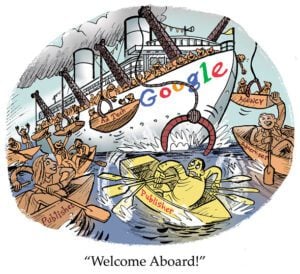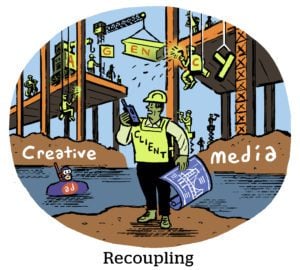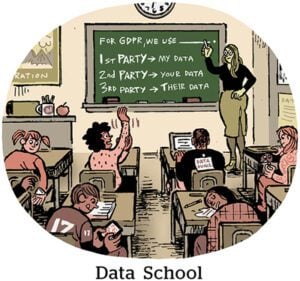This coming year’s privacy changes probably present the biggest change digital advertising has ever faced. But not enough marketers are aware of just how much they could be impacted.
It’s not a question of who isn’t prepared for the deprecation of cookies and Apple’s Privacy Manifests. It’s more a question of who is prepared. And the same goes for Apple’s AppTrackingTransparency (ATT) program, which will enter a new phase of enforcement in the spring that could render many attribution solutions redundant beyond campaign-level anonymized attribution.
Meanwhile, Google deploying its Privacy Sandbox will cause every ad platform that is not Google Ads to underperform as a result of having less accurate targeting data.
There is no doubt that the evolution toward privacy is important. Over the last 20 years, having access to unlimited user-level data was not only immoral, but also illogical.
But are the big players building a more privacy-friendly advertising ecosystem in the right way? Or are they just cementing their control?
The privacy advantage for the big players
Apple and Google are always interested in benefiting Apple and Google. And their recent privacy changes enable them to hold even greater control over the market, as if they didn’t have enough.
Apple Search has become one of the biggest advertising platforms in the world for iOS. And here’s the privacy caveat: Because Apple runs search on its own first-party data, it’s not limited or confined by the same privacy rules as everyone else.
Apple measures on a user-level basis. It can because all of its data is from the App Store, and it can do with its first-party data whatever it wants.
The same goes for Google. As the biggest advertising player in the world, it’s skewing the privacy issue to its own advantage. It holds an unimaginable amount of first-party data that no one else has access to across web and Android.
For other ad tech players, the battle against Google and Apple is not just unfair; it’s unwinnable. So, what is the privacy apocalypse going to mean for marketers?
Attribution laid bare
We’ll have most deterministic attribution platforms reduced to the most basic campaign data, while Meta and Google – themselves subject to Apple’s attribution crackdown – have already established alternative probabilistic measurement solutions.
But with probabilistic measurement, performance also becomes probabilistic.
At a time when budgets are tight and there’s still a possibility of a recession on the horizon, the last thing brands need when it comes to measurement is guesswork.
Media platforms, which don’t see a brand’s other advertising tactics, will always over-report what they generated. And the big players’ probabilistic attribution solutions will continue generating good results, because everyone’s blind to how campaigns are really performing.
The upshot is that advertisers – the majority of whom still have infrastructure based on user-level tracking – are going to make really bad spending and optimization decisions based on messy reporting and make-believe data that doesn’t tally up.
Taking back control
The industry is in desperate need of a new paradigm for measurement. Marketers need to let go of their obsession with tracking every single minute detail about every single user, which is not only unethical but also impossible.
Are we going to set a new measurement standard in 2024? No. But hopefully progress toward more ethical measurement will be made within the next two to three years that will allow advertisers to be less beholden to Google, Apple and the other Big Tech platforms and their stranglehold on user data.
The deprecation of cookies and Apple’s ATT, although implemented under the pretense of being a step in the right direction for the industry, really serve only to line Google’s and Apple’s pockets. Otherwise, the platforms would have never allowed these changes.
The takeaway for marketers is to take back control. Until then, brands can only weather the privacy hurricane that’s about to hit.
“Data-Driven Thinking” is written by members of the media community and contains fresh ideas on the digital revolution in media.
Follow INCRMNTAL and AdExchanger on LinkedIn.
For more articles featuring Maor Sadra, click here.



















